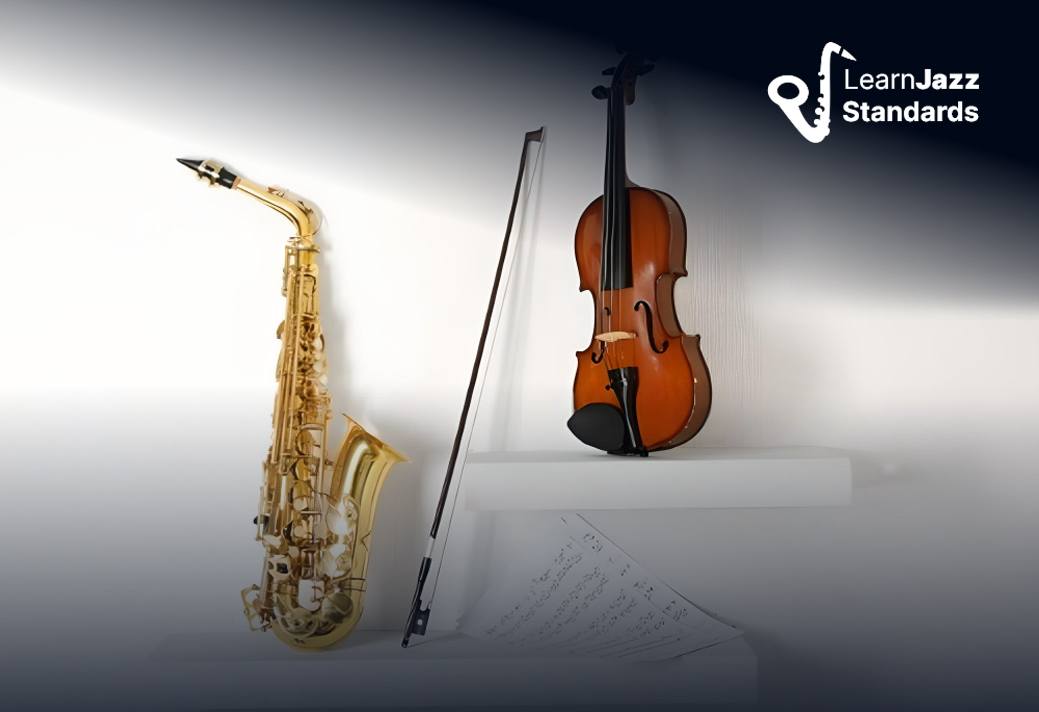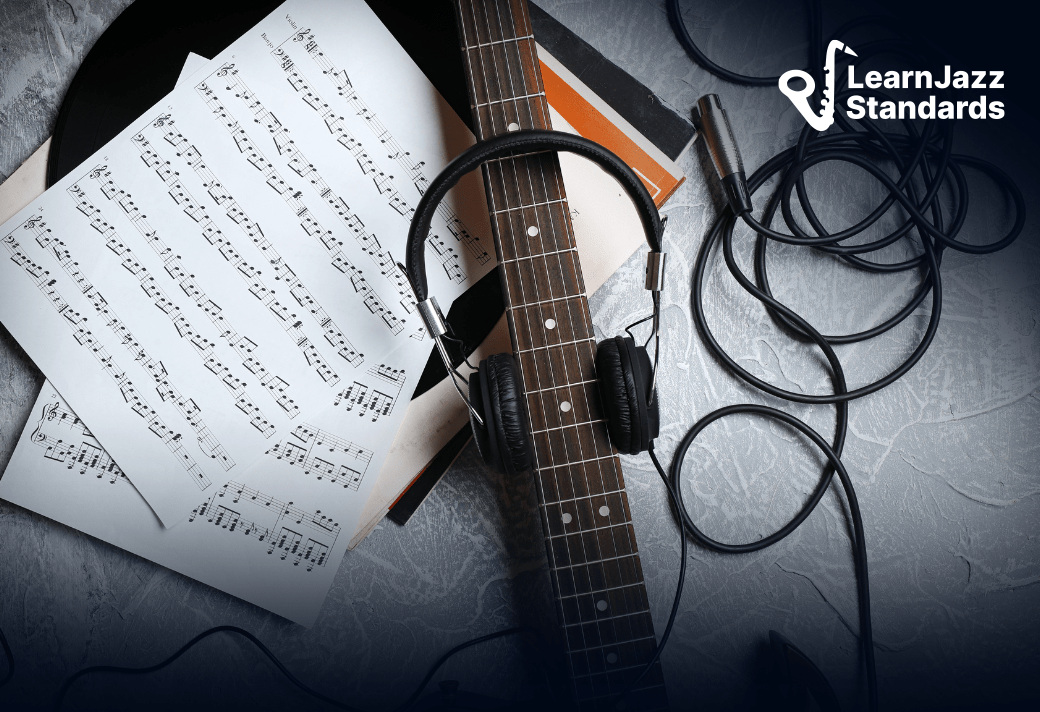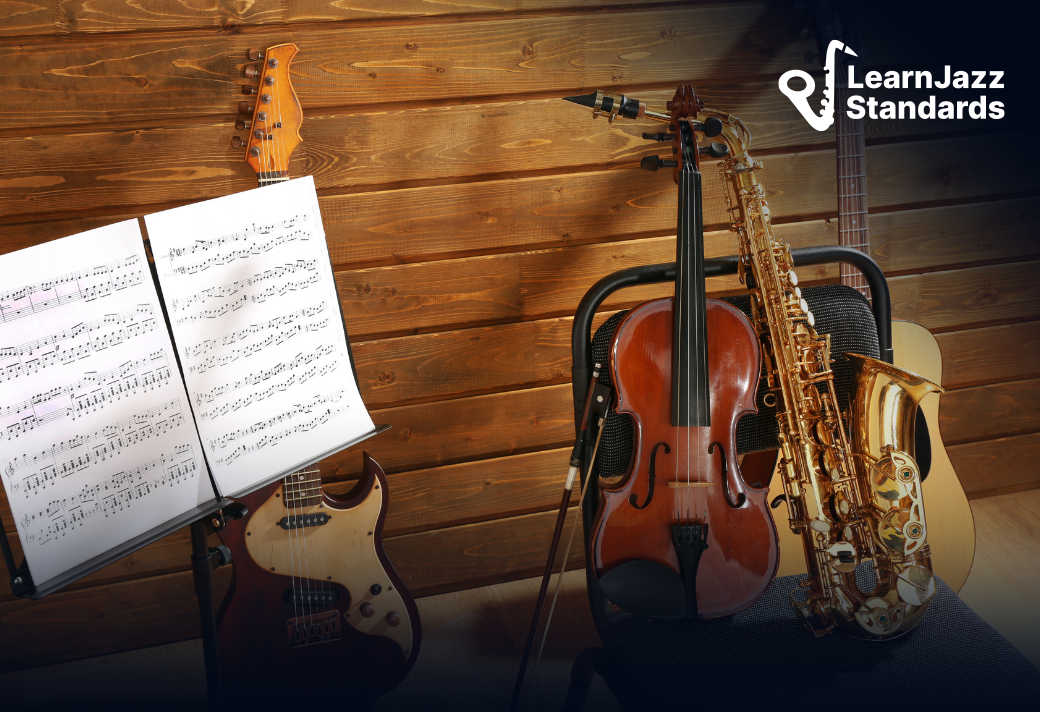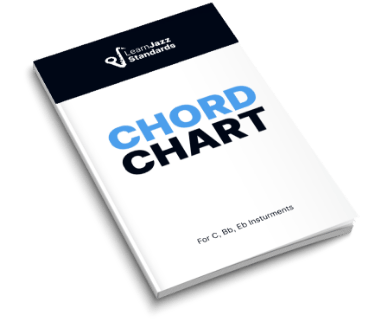When it comes to jazz improvisation, it’s all about learning the jazz language. We do that by learning jazz solos, licks, and just listening to jazz. These are of the utmost importance and should be a regular part of every jazz musicians practice.
However, it’s also important to be aware of how jazz language works. Furthermore, it can be helpful to have different ways to conceptualize how to approach different harmonic aspects presented in jazz.
A common question I get is “what scale should I play over a…..(dominant 7 chord)”. I cringe a little when I get these sorts of questions. It’s not that it’s a bad question, it’s that I fear if I answer it, the student will misuse the information. This is why I have hesitated to write this post for years!
I don’t want someone to misunderstand that you should use scales as a primary approach for jazz improvisation. Because you shouldn’t! Rather they should be used as tools to A. Learn your instrument and B. Conceptualize jazz harmony.
I always give this disclaimer every time I give a lesson on scales: If you approach jazz improvisation with only scales on your mind, you will sound like you are playing scales, not music.
That being said, it can be incredibly useful to understand what scales you can use over different kinds of chords. Why? Because these represent the pitch collections that can be used as note choices.
I like thinking of scales as pitch collections because it’s more visual. When I think of the word “scales” I think of a series of progressing notes going up or down in pitch. When I think of pitch collections, I think of a palette of notes I have to choose from in order to construct melodies. So when it comes to jazz improvisation, think about scales as pitch collections.
Here is a list of what scales you can use over 7th chords. It’s important to note that there are many more scales you can use and super-impose over the chords I’m listing. For example, I won’t mention the different kinds of minor pentatonic scales or bebop scales you can use. I won’t mention the blues scale because I don’t believe it’s the best of choices.
These are the basic scales you can use as pitch collections over the most common 7th chords. Feel free to list more you can think of in the comments section below!
Unaltered 7th Chords
(Based on the major modes in C)
Major 7, 9, 11, 13
The major scale
Minor 7, 9, 11, 13
Natural minor
Dorian minor
Minor 6
Dorian minor
Melodic minor (Jazz Minor)
Dominant 7, 9, 13, sus
Mixolydian scale
Half-Diminished or minor7(b5)
Locrian
Locrian #2
If music theory has always seemed confusing to you and you wish someone would make it feel simple, our free guide will help you unlock jazz theory secrets.BEFORE YOU CONTINUE...

Diminished 7
Whole-Half diminished
Altered 7th Chords
Minor(major7)
Melodic Minor (Jazz Minor)
Major 7(#11/b5)
Lydian
(Ex. Lydian mode from C major)
Major 7(#5)
Lydian Augmented (or Lydian #5)
Dominant 7(#11)
Lydian Dominant
Dominant 7 (b9, #9, #11, b13)
Altered scale
Half-Whole diminished scale (not b13/#5)
Dominant 7 (b13)
Whole Tone Scale
(6 notes)























